US, Taliban inch closer to deal in Doha
US envoy Zalmay Khalilzad heads to Kabul to brief Afghan President Ashraf Ghani on progress
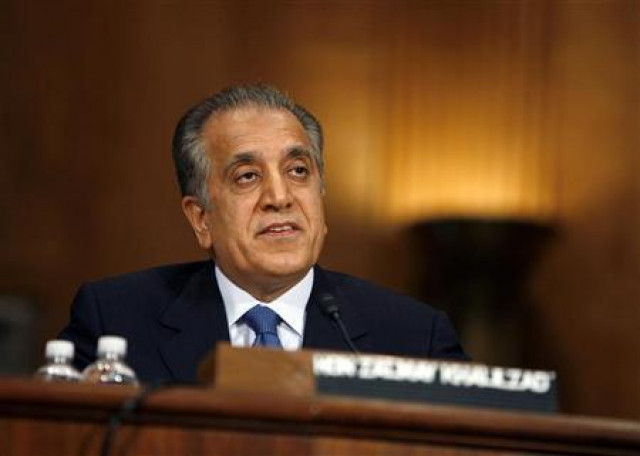
US peace envoy Zalmay Khalilzad, who led the talks with the Taliban, confirmed that progress had been made in the discussions. He tweeted that no deal had been finalised but expressed confidence, saying further talks would resume shortly.
1/3 After six days in Doha, I'm headed to #Afghanistan for consultations. Meetings here were more productive than they have been in the past. We made significant progress on vital issues.
— US4AfghanPeace (@US4AfghanPeace) January 26, 2019
“Meetings here were more productive than in the past. We have made significant progress on vital issues,” he said in his tweet. “Nothing is agreed until everything is agreed, and ‘everything’ must include an intra-Afghan dialogue and comprehensive ceasefire.”
2/3. Will build on the momentum and resume talks shortly. We have a number of issues left to work out. Nothing is agreed until everything is agreed, and “everything” must include an intra-Afghan dialogue and comprehensive ceasefire.
— US4AfghanPeace (@US4AfghanPeace) January 26, 2019
3/3. Thanks to the Government of #Qatar for their constructive engagement and their facilitation of this round of talks. Particularly the Deputy PM and FM @MBA_AlThani_ for his personal involvement.
— US4AfghanPeace (@US4AfghanPeace) January 26, 2019
Doha-based Al Jazeera news channel reported that the US and Taliban negotiators agreed to put an end to the 17-year Afghanistan war and that Khalilzad was headed to Kabul to brief Afghan President Ashraf Ghani on the outcome of the talks after a six-day discussion.
Taliban sources told Reuters that the US negotiators had agreed to a “draft peace deal”, stipulating the withdrawal of foreign forces from Afghanistan within 18 months of the agreement being signed. The US has yet to confirm the development.
In return, according to the Taliban sources, the group gave assurances that Afghanistan would not be allowed to be used by al Qaeda nor Islamic State militants to attack the United States and its allies—a key early demand of Washington.
The sources said that a key provision to the deal included a ceasefire but they had yet to confirm a timeline. They added that the Taliban would only open talks with Afghan government representatives once the ceasefire is implemented.
“If foreign forces are withdrawn and ceasefire is implemented within 18 months, other aspects of the peace process can be put into action,” a Taliban source told Reuters, quoting from a portion of the draft.
Other clauses in the draft include an agreement over the exchange and release of prisoners, the removal of an international travel ban on several Taliban leaders by Washington and the prospect of an interim Afghan government after the ceasefire is struck, the Taliban sources said.
However, Taliban spokesperson Zabihullah Mujahid in a statement denied reports about reaching an agreement on ceasefire and talks with the Kabul administration. Until the issue of withdrawal of foreign forces from Afghanistan was agreed upon, progress on other issues would be impossible, he said.
Mujahid said that the “negotiations, revolving around the withdrawal of foreign troops from Afghanistan and other vital issues, saw progress” but stressed that the issues were of critical nature and needed comprehensive discussions.
“Therefore, it was decided that talks about unresolved matters will resume in similar future meetings in order to find an appropriate and effective solution and also to share details of the meetings and receive guidance from their respective leaderships.”
The suggestion to appoint an interim government in Afghanistan comes at a time when top politicians, including Ghani, have filed their nomination papers for the presidential polls in July this year. Ghani has repeatedly rejected the offer to agree to the formation of an interim government.
The Taliban sources confirmed provisions in the draft that have broader implications for Afghanistan’s ties with its neighbours, particularly Pakistan, India and China. They said the deal included provisions that Baloch militants will not be allowed to use Afghan soil to target Pakistan.
It is not known if both the sides accepted the draft or when it would be completed and signed.
However, the Taliban sources said that fresh talks on the draft were expected in February -- again in the Qatari capital Doha.
In that round of negotiations, they expected their side would be led by new political chief Mullah Abdul Ghani Baradar, the movement’s co-founder and a former military commander who was released from prison in Pakistan last year.


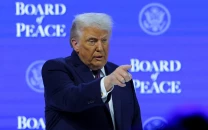
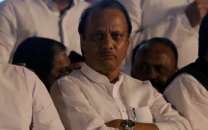
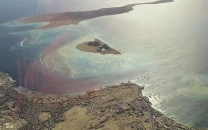
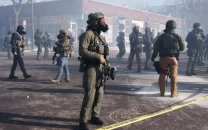
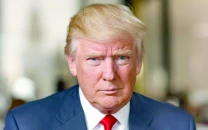












COMMENTS
Comments are moderated and generally will be posted if they are on-topic and not abusive.
For more information, please see our Comments FAQ